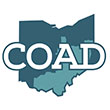Frequently asked questions about finding child care
After I search, what if none of the names on the list work for me? Can I get more names?
You can always call your local office or email us to do an additional search for you to see if there are more providers that would meet your needs for child care, and it’s always a free service.
If I used this service in the past, would it be worth my time to do it again?
Yes. New providers are added to our database on an on-going basis as they become licensed. Your needs may change too, and that may alter your search process.
I don’t need child care, I’m just looking for a preschool. Can I still find that information?
Yes. Our search for care can include preschools, child care centers, family child care providers, and school age programs. In addition, we can link you with specialized programs like Head Start, public school preschool programs, and Step Up to Quality Rated Programs.
How much will I have to pay for child care?
Cost varies depending on many factors. The average cost of care for a 4-year old in the coad4kids region is $5,620 a year.
Where can I get financial help to pay for child care?
Families can apply for child care assistance through your local County Department of Jobs and Family Services. To determine if you may be eligible for this type of assistance please contact the office located in your home county.
What other assistance is available?
Some additional assistance is available in the form of tax credits. According to information found on the National Women’s Law Center website, families may be eligible for a number of federal tax credits, including:
- Earned Income Tax Credit, which helps supplement the wages of low- and moderate-income families (those earning less than $49,078 annually). This credit is worth up to $5,751 and is refundable.
- Child Tax Credit, which helps families offset some of the costs of raising children. This credit is worth up to $1,000 per child. Families who owe little or no income tax can receive some or all of this credit as a refund if they earned at least $3,000 in 2011.
- Child and Dependent Care Tax Credit, which helps families offset some of the child and dependent care expenses they incur in order to work. This credit is worth up to $2,100, though the amount that may be claimed is limited by a family’s federal income tax liability.
Some states also offer their own family tax provisions: Twenty-eight states, including Ohio, offer child and dependent care tax provisions.
The Ohio Benefit Bank is a great resource to connect people with the services they need. Below is a listing of some of the programs that you can connect to via their website.
- Food Assistance
- Women Infants and Children (WIC)
- Supplemental Nutrition Assistance Program (SNAP)
- School Meals (USDA Child Nutrition Program)
- Healthcare Programs for Families and Children
- Medicaid for the Aged, Blind and Disabled
- Medicare Premium Assistance
- Child and Family Health Services (CFHS)
- Bureau for Children with Medical Handicaps (BCMH)
- Extra Help for Medicare Part D
- Medicare Rx Extra Help
- File Your Federal and State Tax Returns
- Earned Income Tax Credit
- Free Application for Federal Student Aid
- Home Energy Assistance Program (HEAP)
- Child Care Assistance
- Ohio Works First Cash Assistance (OWF)
- Golden Buckeye Program
- Senior Community Service Employment Program (SCSEP)
- Big Brothers / Big Sisters “Amachi” Youth Mentoring Program
- Voter Registration
What is a star rated child care program?
The state of Ohio has a rating system called Step Up to Quality. Star ratings are awarded to programs that voluntarily go above and beyond the minimum requirements of child care licensing. You can learn about Step Up to Quality ratings here.
How many other children will my child be with?
Adult to child ratios are set by state rules and are based on age and type of care.
Do providers have to be fingerprinted?
Yes, but only in regulated programs, according to Ohio rules. All staff in a licensed center setting must pass a fingerprint background check. County Certified Type B providers who do care in their homes must also be fingerprinted, as well as anyone in the home over 18 years of age.
Note: Unregulated/private home care providers are not required to be fingerprinted or monitored in Ohio.
What if I have a question about my child’s development?
Our office has an infant/toddler coordinator, preschool child care coordinator, and school age coordinator available to answer your questions or concerns about your child’s development.
